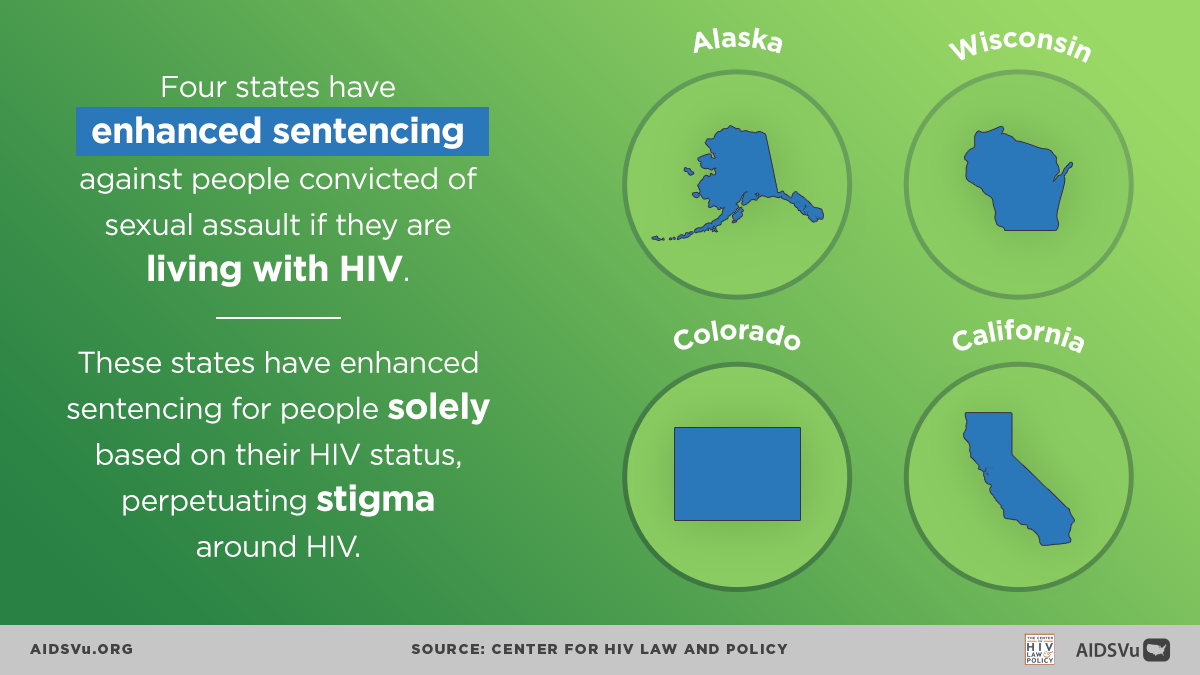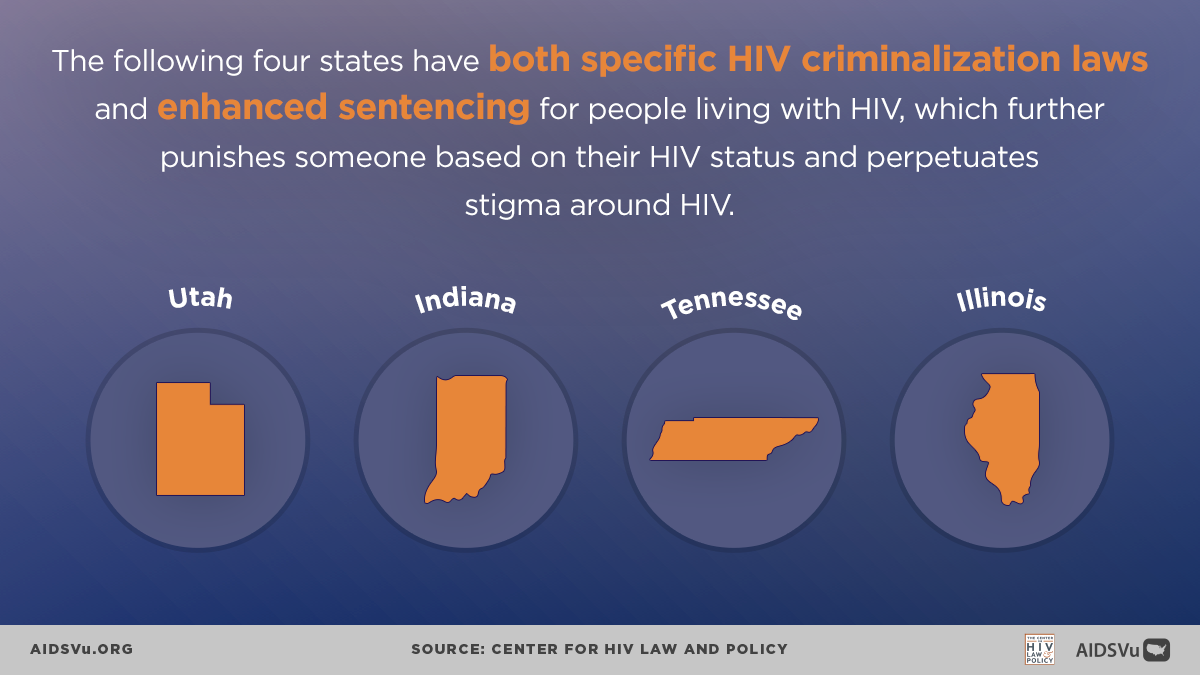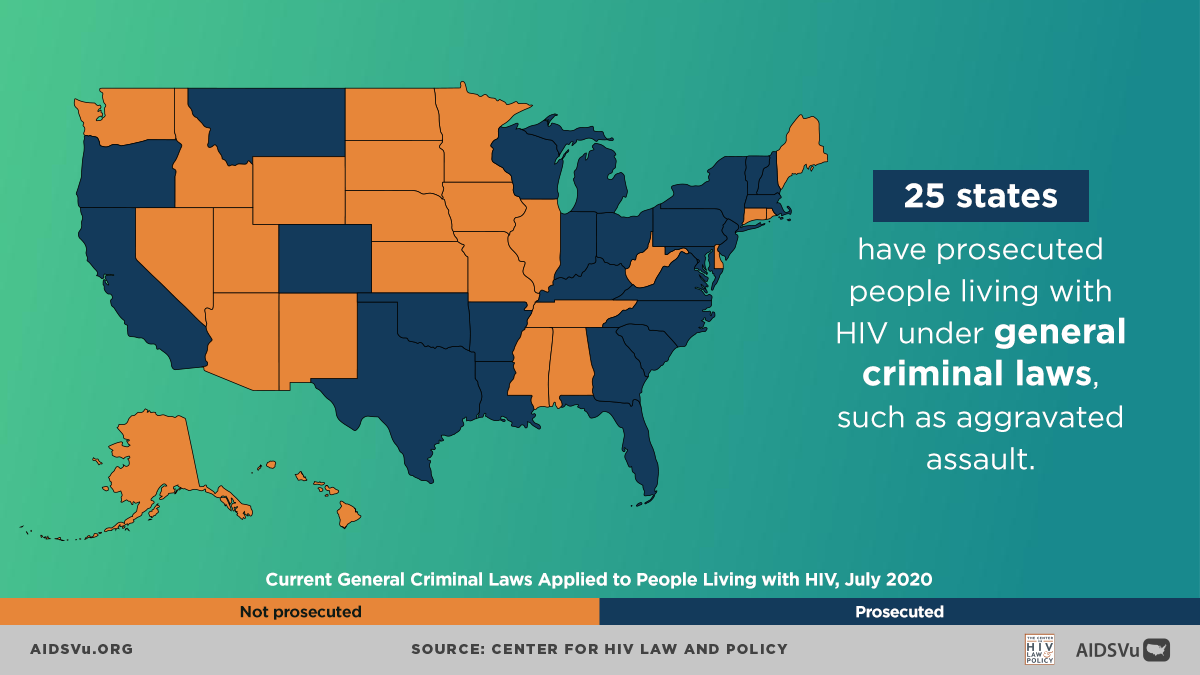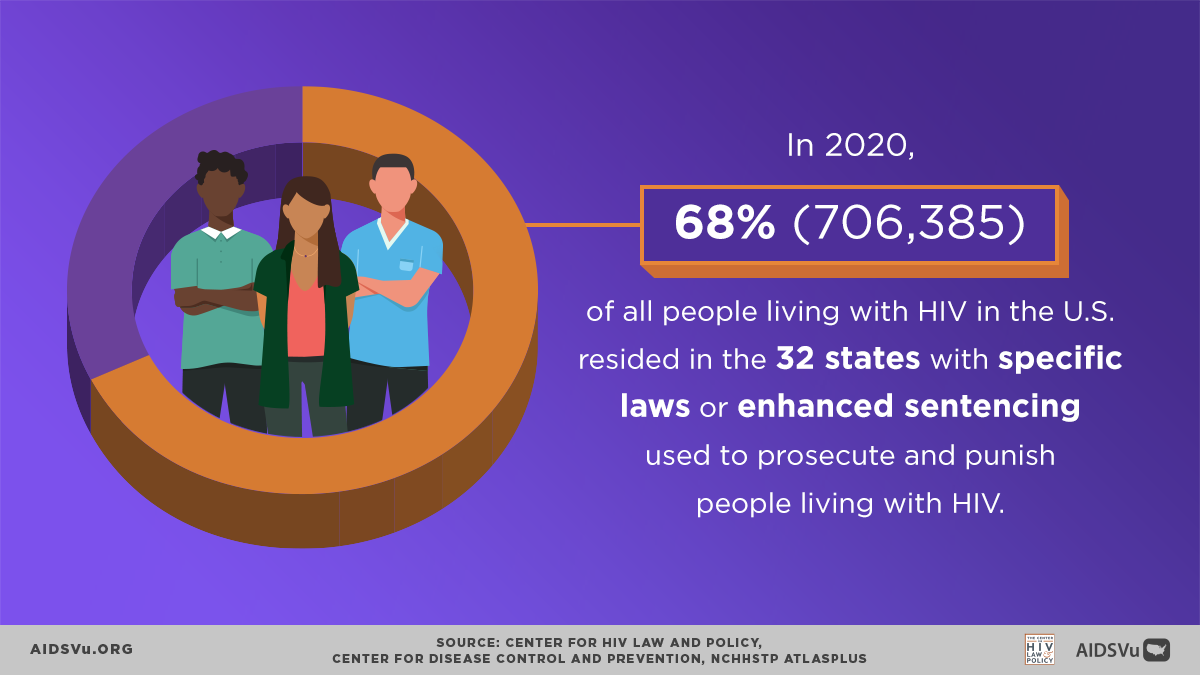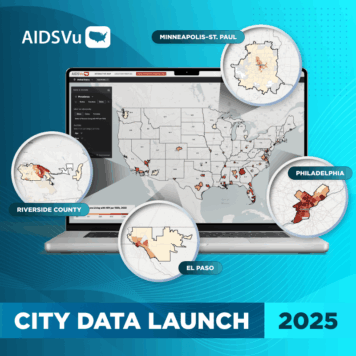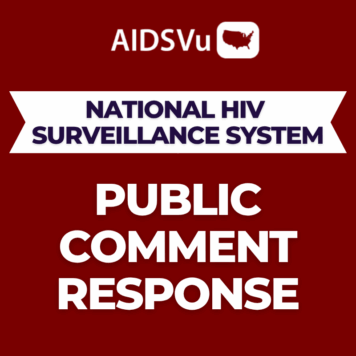HIV criminalization is the use of specific or general criminal laws to prosecute an individual based on their positive HIV status.
To further our commitment to making HIV-related data widely available, easily accessible, and locally relevant, AIDSVu is launching new data and comparison maps visualizing state-level HIV criminalization laws and HIV prosecution in partnership with the Center for HIV Law and Policy.
Along with new insights, AIDSVu is featuring conversations with leaders and activists in the movement who are advocating for meaningful HIV criminalization reforms and repeals across the country.
In 2020, 68% of people living with HIV in the U.S. resided in the 32 states with specific laws or enhanced sentencing against people living with HIV (PLWH). An enhanced sentence increases a defendant’s sentence, fine, or other consequences beyond the normal range. Enhanced sentencing for HIV-related convictions is solely based on an individual’s positive HIV status and can include the following:
- Extended prison sentence
- Increased fines
- Mandatory sex offender registration
- Severe collateral consequences, such as access to housing and voting rights
Among the 32 states with specific HIV criminalization laws or enhanced sentencing, 25 states have prosecuted PLWH under general criminal laws, such as aggravated assault. The legal consequences and conditions of these HIV criminalization laws vary across the states. These laws showed a lack of understanding of HIV, reflecting false assumptions – for example, criminalizing biting or spitting by PLWH even though you cannot transmit HIV through saliva. HIV criminalization laws have also been shown to discourage HIV testing, perpetuate stigma against PLWH, and exacerbate disparities.
Similar to the HIV epidemic, HIV criminalization laws disproportionately affect marginalized populations such as communities of color, transgender women, and sex workers. These populations are more likely to be adversely affected by social determinants of health and racial inequities, which makes them more susceptible to contact with the criminal justice system and increases the possibility their HIV status will be used against them in a legal context.
AIDSVu added a new Deeper Look: HIV Criminalization page to provide the community with more insights into the history and legal context of HIV criminalization, as well as the advocacy efforts to decriminalize HIV in various states.
To learn more about HIV criminalization in the U.S., explore these AIDSVu resources:
- Visualize the distribution of states that criminalize and/or prosecute HIV at the state-level with AIDSVu’s interactive maps.
- Explore our local data profiles to learn about HIV criminalization laws in your state.
- Read expert-led Q&A blogs to deepen your understanding of HIV criminalization in the U.S.
- Read our Deeper Look: HIV Criminalization to learn more about HIV criminalization laws in the U.S.
- Share our infographics with your networks to raise awareness.



